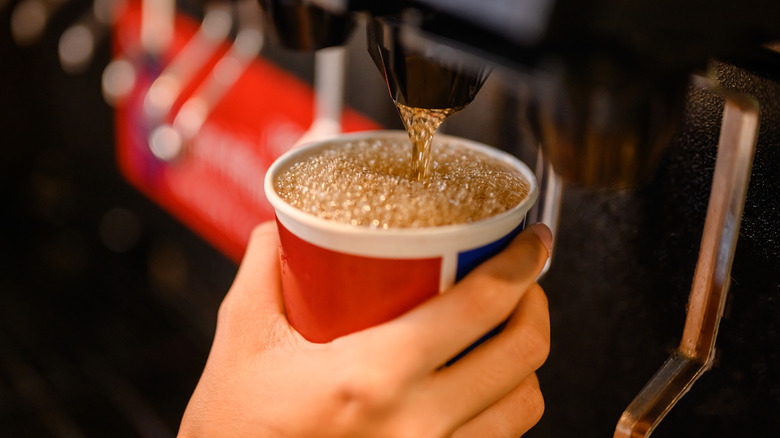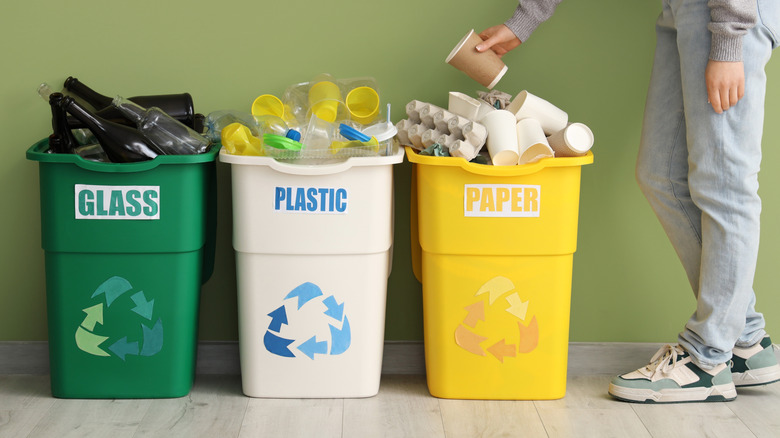What To Know Before You Recycle Your Fast Food Drink Cups
Not all plastic is recyclable. After you've downed your drink and you're deciding what bin to toss it in, it's important to remember that not every plastic cup gets to go into that bright blue bin stamped with the recycling symbol.
There are seven common varieties of plastic which are named and numbered by their recycling code:
- 1 — polyethylene terephthalate (PET or PETE)
- 2 — high-density polyethylene (HDPE)
- 3 — polyvinyl chloride (PVC or vinyl)
- 4 — low-density polyethylene (LDPE)
- 5 — polypropylene (PP)
- 6 — polystyrene (PS or Styrofoam)
- 7 which covers miscellaneous materials that don't fall into any of the other groups
You'll find the recycling symbol for each of these classifications on plastic bottles and containers. These symbols might have looked like an unintelligible secret code until now, but the triangular-shaped chasing arrows icon features numbers and letters denoting which plastic category the item belongs to. These numbers can help determine a plate (or cup's) fate. Type 1, polyethylene terephthalate (PET), is the most common type of plastic. And in March 2024, Coca-Cola rolled out all-new plastic bottles made of recycled PET. It's also common for plastic cups and food packaging to be made from type 6 plastic, polystyrene (PS).
When to recycle your fast food drink cup
To make sure you're recycling your fast food containers correctly, research your local recycling guidelines, since recycling centers accept different types of plastics. Any plastics you can recycle should be cleaned and emptied before they're added to your curbside recycling bins. If you can't determine what to do with a cup or container, it's actually best to just toss it. A non-recyclable item can contaminate the rest of the bunch, causing extensive damage to the processing facility as well as wasting time in operations.
Paper cups, like the ones restaurants offer for your to-go beverage, are often not recyclable. While paper alone can be reprocessed, many of these "paper" cups are also coated in a thin layer of wax. The wax makes the cup sturdier for coffee and soda on the go, however it is difficult to separate the wax from the paper during the recycling.
In early fall 2024, a handful of chains including Dunkin' Donuts, Burger King and KFC conducted a months-long test featuring reusable beverage cups in Petaluma, California. The study was designed to see how customers responded to using plastic renewable cups, instead of the familiar single-use ware. While the results of that study are pending, edible baking cups might be part of the solution at home. There's been lots of buzz about forever chemicals in your kitchen and household goods, but hopefully one day all of our vessels — even the ones from the drive-thru — will be safe for people and the environment.

